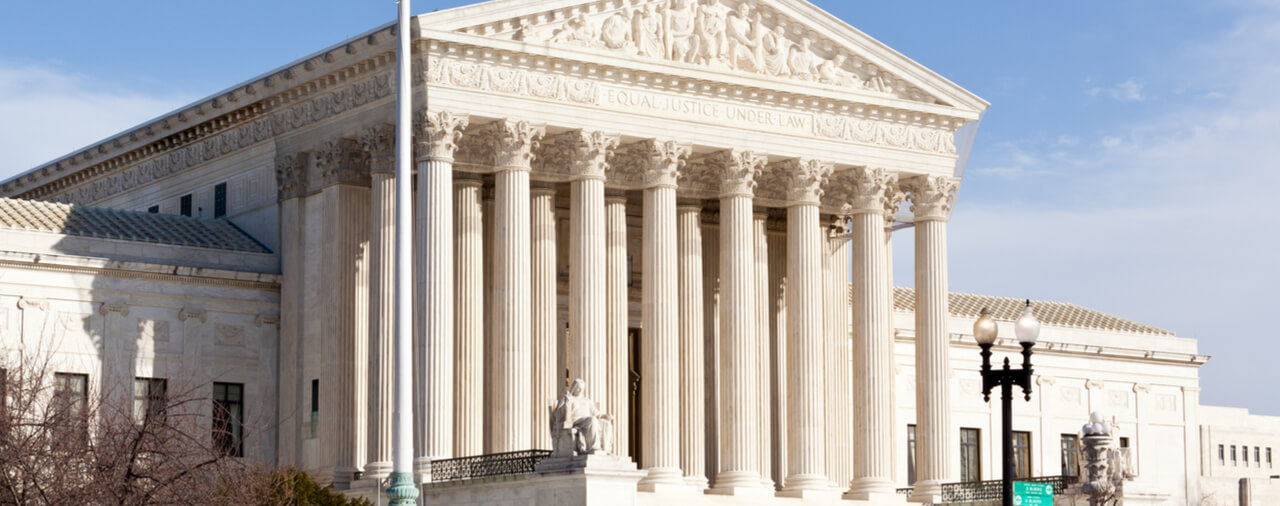On July 9, 2018, President Donald Trump nominated Judge Brett Kavanaugh of the United States Court of Appeals for the District of Columbia Circuit to the Supreme Court of the United States [PDF version]. If confirmed, Judge Kavanaugh will fill the seat being vacated by the retiring Justice Anthony Kennedy [see blog]. You may watch the video of the announcement with remarks from President Trump and Judge Kavanaugh below:
Brett Kavanaugh has been a Judge on the D.C. Circuit since 2006. Because of its location in the Nation’s capital, the D.C. Circuit hears a large number of cases dealing with administrative law issues. If confirmed, Judge Kavanaugh would be the fourth sitting Justice to have served on the D.C. Circuit, joining Chief Justice John Roberts, Justice Clarence Thomas, and Justice Ruth Bader Ginsburg. The White House press release noted that he has authored “more than 300 opinions, including 11 that have been affirmed by the Supreme Court.”
Judge Kavanaugh was initially nominated to the D.C. Circuit by President George W. Bush in 2003. However, his nomination was not voted on until 2006 due to opposition from Senate Democrats. He was ultimately confirmed to the D.C. Circuit on a near party-line vote of 57-36. Kavanaugh was a staffer in the Bush White House from 2001-2006, serving as staff secretary from 2003-2006.
Judge Kavanaugh graduated from Yale Law School in 1990. He clerked for Judge Walter Stapleton of the United States Court of Appeals for the Third Circuit, Judge Alex Kozinski of the United States Court of Appeals for the Ninth Circuit, and Justice Anthony Kennedy — who he has now been nominated to replace — of the Supreme Court. After his clerkship with Justice Kennedy in 1994, Kavanaugh served as an attorney under Independent Counsel Kenneth Starr, who was investigating various issues relating to President Bill Clinton. Kavanaugh also worked in private practice prior to joining the Bush Administration.
The D.C. Circuit hears comparatively fewer immigration cases than does its sister circuits. This is because it only has jurisdiction over appeals arising in Washington D.C. However, Judge Kavanaugh has issued a litany of important decisions in administrative law cases and even in a few immigration cases that will be worth examining for those of us interested in immigration law. Over the coming weeks, I will publish articles examining what we know about Judge Kavanaugh’s judicial philosophy and some of his decisions that may provide clues as to the effect he may have on immigration law if he is ultimately confirmed to the Supreme Court. Please continue to follow our blog for further updates.





